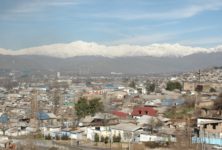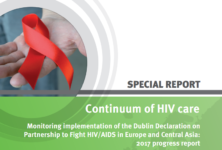The number of cells harboring HIV DNA reaches its highest level within the first two weeks of acute HIV infection and levels at a set-point two weeks thereafter, a clinical trial published in EBioMedicine showed. However, two weeks of antiretroviral therapy at this early stage reduced HIV DNA levels 20 fold compared to not taking antiretrovirals.
The study enrolled 90 participants in the U.S. Military HIV Research Program’s clinical trials in Thailand who had been exposed to HIV very recently and had seroconverted. Most study participants were young men who have sex with men and transgender women, and about a fifth (19 participants) of participants were not on treatment.
Three years after study enrollment, participants who did not take antiretrovirals had a 316-fold higher level of HIV DNA than those who were on HIV medications. Study authors concluded that therapy very early “offers the opportunity to significantly reduce the frequency of cells harboring HIV DNA.”


 ПОИСК ПО САЙТУ
ПОИСК ПО САЙТУ  поиск по ресурсному центру
поиск по ресурсному центру 


